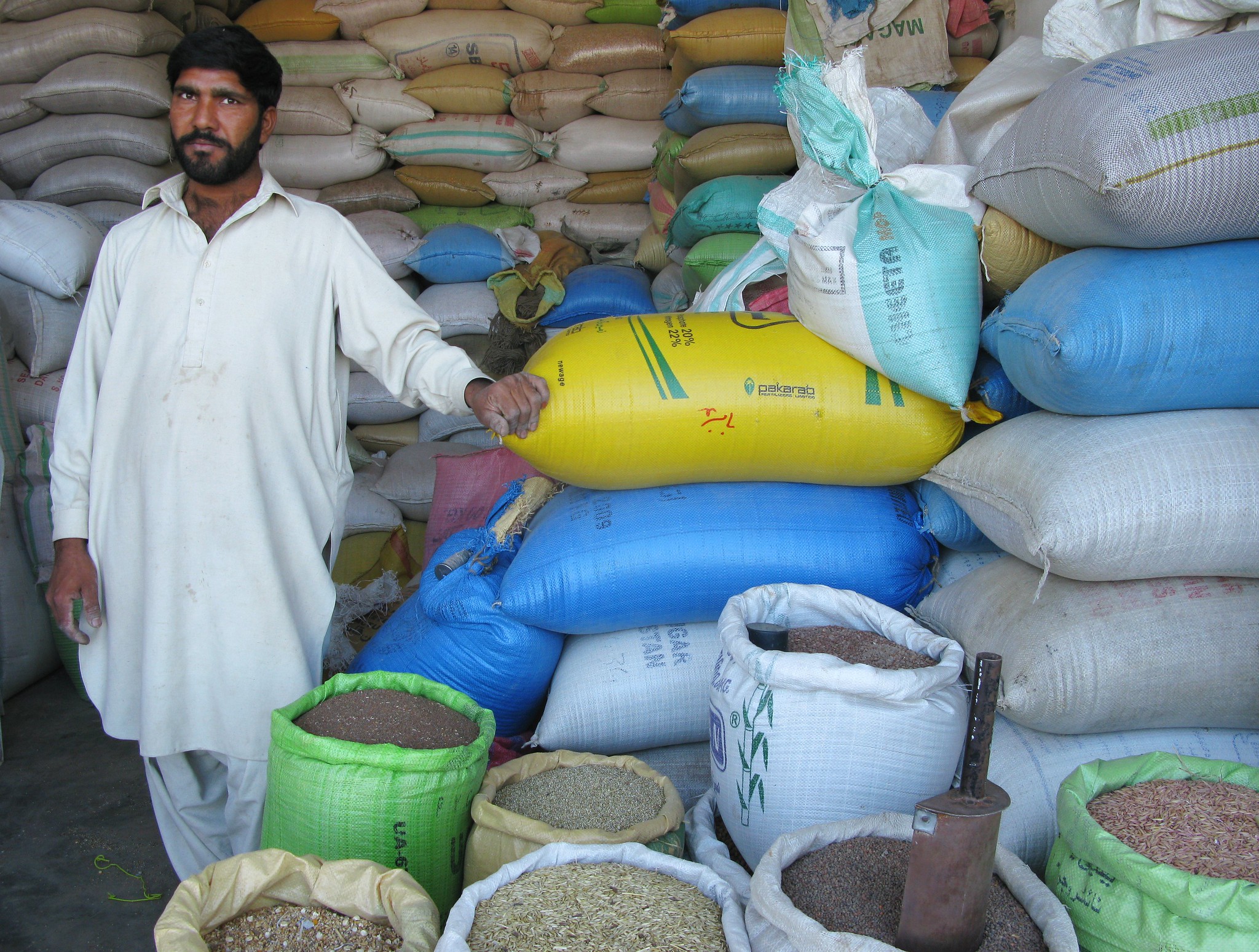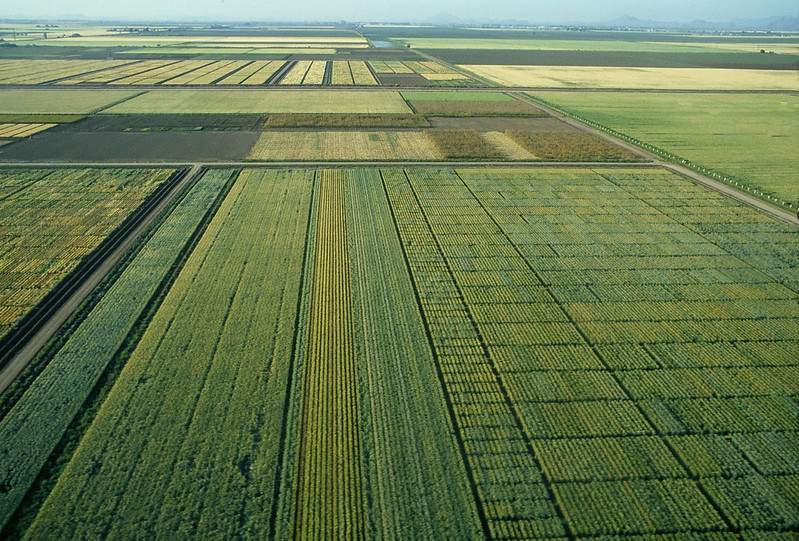Wheat is critical to millions of households in Pakistan as it serves a dual role as a foundational part of nutritional security and as an important part of the country’s economy. Pakistan’s goal to achieve self-sufficiency in wheat production is more attainable with the release of 31 wheat varieties since 2021.
These new seeds will help the country’s 9 million hectares of cultivated wheat fields become more productive, climate resilient, and disease resistant—a welcome development in a region where climate change scenarios threaten sustained wheat production.
The varieties, a selection of 30 bread wheat and 1 durum wheat, 26 of which developed from wheat germplasm provided by the International Maize and Wheat Improvement Center (CIMMYT) were selected after rigorous testing of international nurseries and field trials by partners across Pakistan. During this period, three bread wheat varieties were also developed from local breeding programs and two varieties (one each of durum and bread wheat) were also developed from the germplasm provided by the ICARDA. These efforts are moving Pakistan closer to its goal of improving food and nutrition security through wheat production, as outlined in the Pakistan Vision 2025 and Vision for Agriculture 2030.
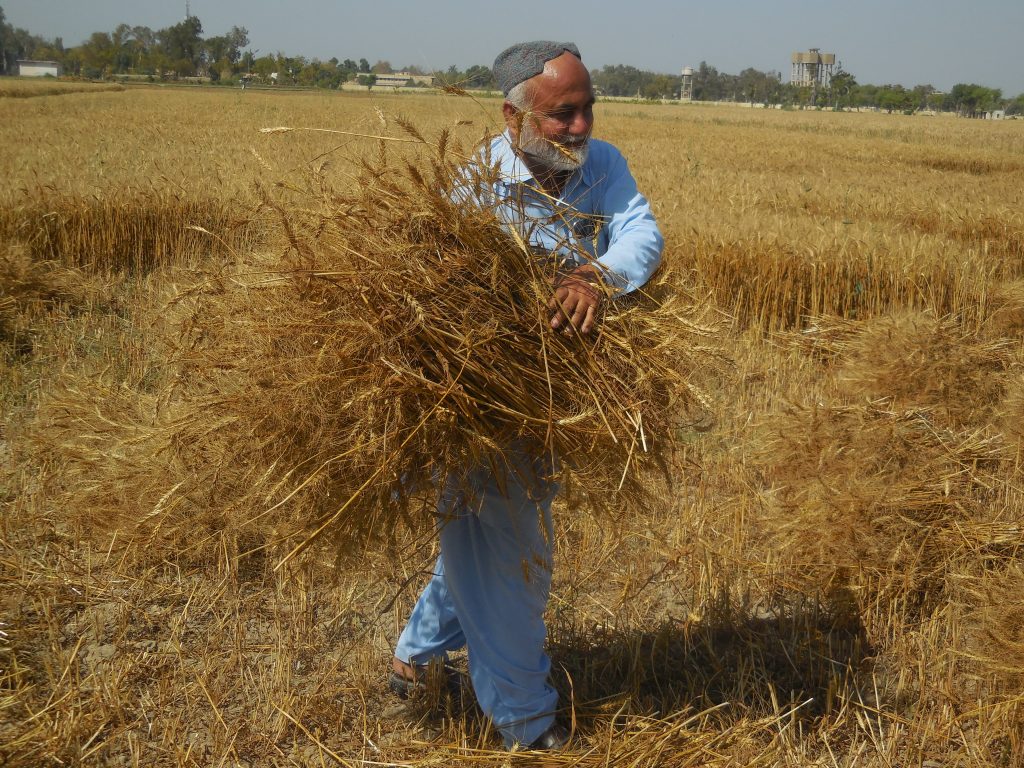
Over multiple years and locations, the new varieties have exhibited a yield potential of 5-20% higher than current popular varieties for their respective regions and also feature excellent grain quality and attainable yields of over seven tons per hectare.
The new crop of varieties exhibit impressive resistance to leaf and yellow rusts, compatibility with wheat-rice and wheat-cotton farming systems, and resilience to stressors such as drought and heat.
Battling malnutrition
Malnutrition is rampant in Pakistan and the release of biofortified wheat varieties with higher zinc content will help mitigate its deleterious effects, especially among children and women. Akbar-2019, a biofortified variety released in 2019, is now cultivated on nearly 3.25 million hectares. Farmers like Akbar-2019 because of its 8-10% higher yields, rust resistance, and consumers report its good chapati (an unleavened flatbread) quality.
“It is gratifying seeing these new varieties resulting from collaborative projects between Pakistani wheat breeding programs and CIMMYT along with funding support from various donors (USAID, Bill & Melinda Gates Foundation, HarvestPlus, and FCDO) and the government of Pakistan,” said Ravi Singh, wheat expert and senior advisor.
Closing the yield gap between research fields and smallholder fields
Releasing a new variety is only the first step in changing the course of Pakistan’s wheat crop. The next step is delivering these new, quality seeds to markets quickly so farmers can realize the benefits as soon as possible.
Increasing evidence suggests the public sector cannot disseminate enough seeds alone; new policies must create an attractive environment for private sector partners and entrepreneurs.
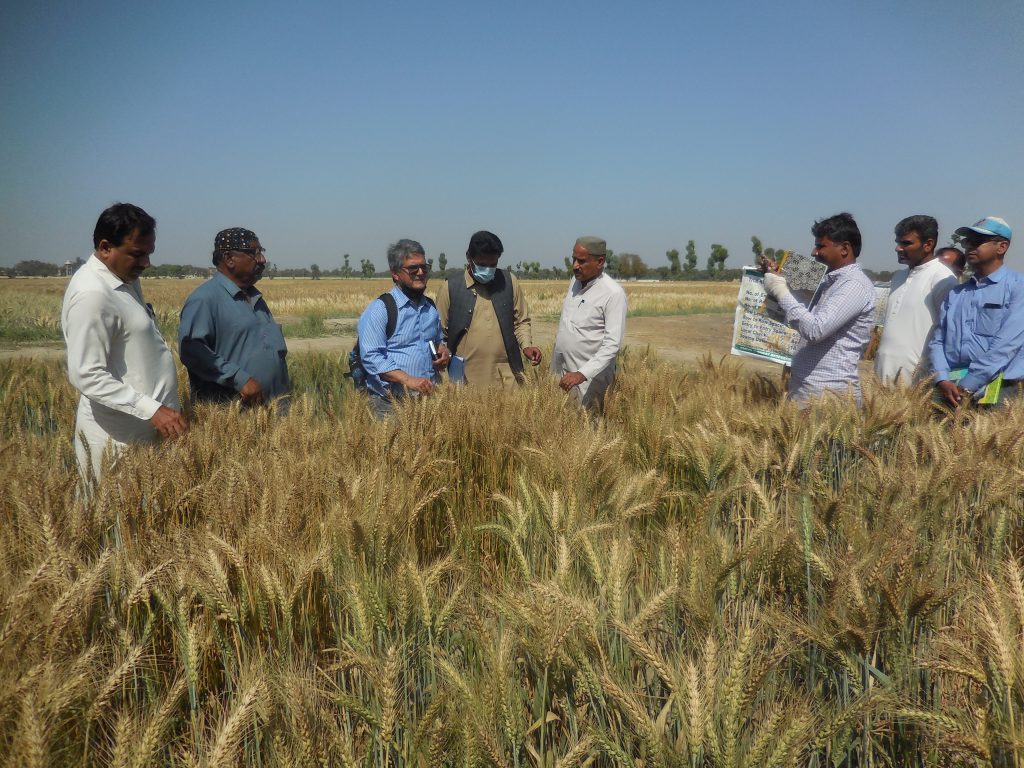
“Pakistan has developed a fast-track seed multiplication program which engages both public and private sectors so the new varieties can be provided to seed companies for multiplication and provided to farmers in the shortest time,” said Javed Ahmad, Wheat Research Institute chief scientist.
Strengthening and diversifying seed production of newly released varieties can be done by decentralizing seed marketing and distribution systems and engaging both public and private sector actors. Marketing and training efforts need to be improved for women, who are mostly responsible for household level seed production and seed care.
A concerted effort to disseminate the improved seed is required, along with implementing conservation agriculture based sustainable intensification, to help Pakistan’s journey to self-sufficiency in wheat production.
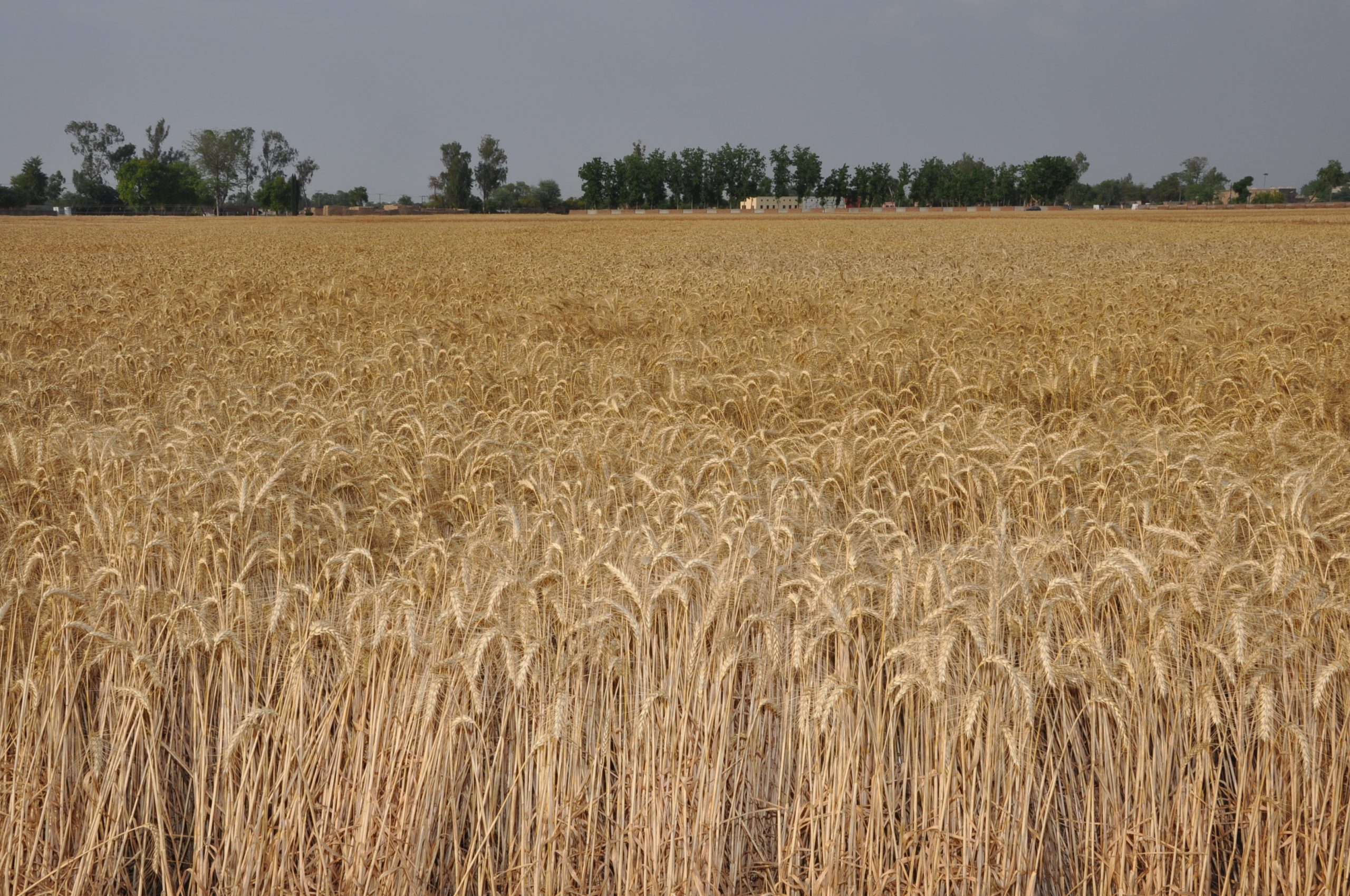
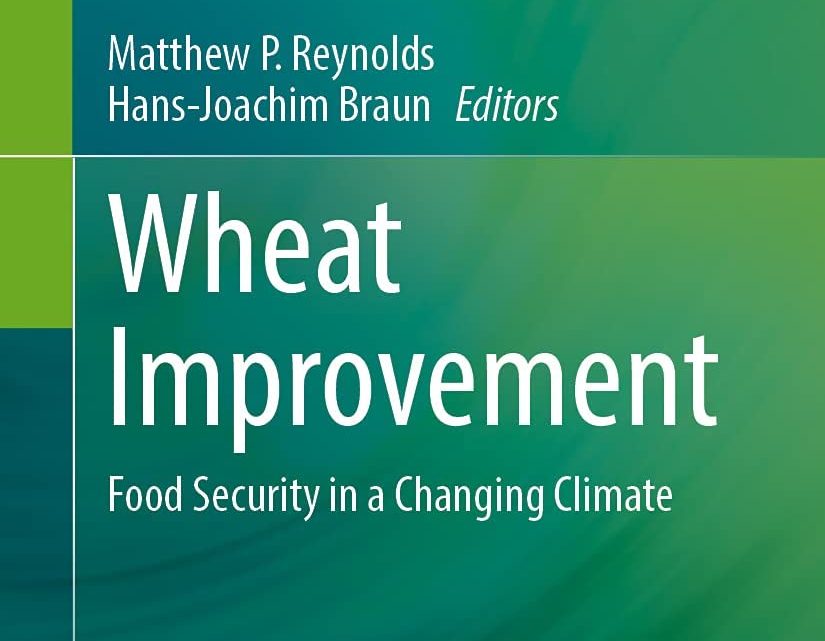
 Capacity development
Capacity development 